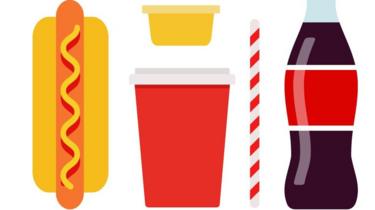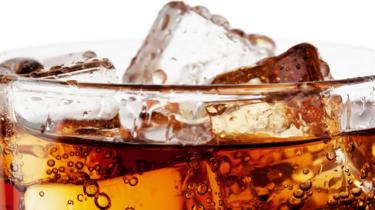MY WORLD OF TRUTH
Thursday, 4 January 2018
DOES DRINKING FIZZ MAKE YOU FAT?
 GETTY IMAGES
GETTY IMAGES
We all know that sugary, fizzy drinks are full of calories - with the equivalent of about seven teaspoons of sugar in a standard can of cola.
But is it only the sugar in the drink that swells our waists, or could it also be the bubbles?
In a recent study done last year at Birzeit University in the Palestinian territories, researchers took a group of male rats and gave them either a fizzy sugary drink, a flat sugary drink or tap water to consume.
They found that the rats who regularly drank the gassy sugary drink put on more weight at a much faster rate than rats given either flat sugary liquids or tap water.
When they took blood samples, they found that the rats drinking fizz had much higher levels of the hunger hormone ghrelin, which could explain the weight gain.
Cheese sandwich test
It was such an interesting study that the BBC's Trust Me I'm a Doctor team thought we should do a similar experiment, but with a mix of human volunteers.
With the help of Dr James Brown from Aston University in Birmingham we recruited a group of healthy volunteers.
Rather cunningly, we decided not to tell our volunteers what the experiment was really about as we didn't want that knowledge to affect the results.
So instead of telling them it was mainly about bubbles, we said it was about measuring the impact of sugary drinks on appetite - which was partly true.
At the start of the experiment, our volunteers arrived at the lab after having gone 10 hours without food.
They were then given identical, calorie-controlled cheese sandwiches to eat. The idea of doing this was to ensure that all our volunteers started with roughly similar levels of ghrelin in their blood.
An hour after eating their sandwich each volunteer was given one of several different soft drinks, allocated at random.
They either received a glass of a fizzy sugary drink, a glass of the same drink (but flat), a glass of fizzy water or one of flat water.
Ten minutes after they had had their drink, James took a blood sample to measure the volunteers' ghrelin levels.
 GETTY IMAGES
GETTY IMAGES
Once he'd done that, our volunteers were sent away with a food diary - so we could assess how many calories they ate in the hours following their drink.
They had to come back to the lab three more times over the next couple of weeks to eat the same cheese sandwich and have bloods taken, but each time they were given a different drink.
This is what's known as a crossover trial - the idea being to try different things on the same person rather than just across a group.
It means you can produce statistically significant results with fewer recruits.
Ghrelin is the key
Once James had crunched the numbers we gathered our volunteers together to tell them the true purpose of our study, which was to assess the impact of not only the sugar, but the fizziness, on hunger.
What James had found was that ghrelin levels were about 50% higher when people had a fizzy drink.
So the fizzy sugary drink makes you a lot hungrier an hour later than drinking the same drink, but flat.
This increase in ghrelin wasn't only seen after drinking sugary fizzy drinks; there was also a slight effect when James and his team compared the impact of still with carbonated water.
We also wanted to see what effect drinking carbonated fizz had on how much food our volunteers consumed later in the day. And that, in some ways, was even more revealing.
James says: "If you group together the carbonated drinks and the non-carbonated drinks, they ate on average 120 calories more after they had had a carbonated drink than they ate after they had a non-carbonated drink, and that's a really significant finding."
So, on top of the 140 calories in the fizzy drink, it seems they ate another 120 calories later in the day as a direct result of the extra ghrelin that was produced by having had a drink with fizz in it.
But why should bubbles have this effect on our hunger signals?
We don't know for sure, but James thinks there are two possible reasons.
"One is that after drinking a carbonated drink, carbon dioxide is released in your stomach. There are chemical receptors in the stomach which detect carbon dioxide and cause the cells at the top of the stomach to release ghrelin and it makes you feel hungry.
Another possibility is it is a mechanical thing. The stomach bloats and stretches a little bit from that extra gas and again that stimulates cells to release ghrelin. Those are the best two possibilities in terms of mechanism."
So is it OK to drink flat, sugary drinks?
Unfortunately not. According to James: "The take home message from this is sadly and boringly that the healthiest option is probably still water."
In terms of scientific research this is early days, but it provides another good reason why people should steer clear of sweet fizzy drinks.
posted by Davidblogger50 at 06:35

0 Comments:
Post a Comment
<< Home